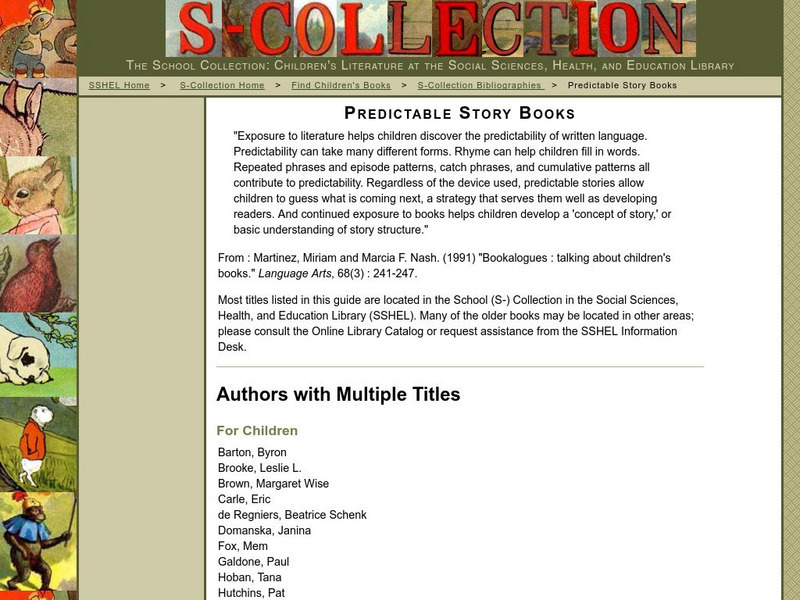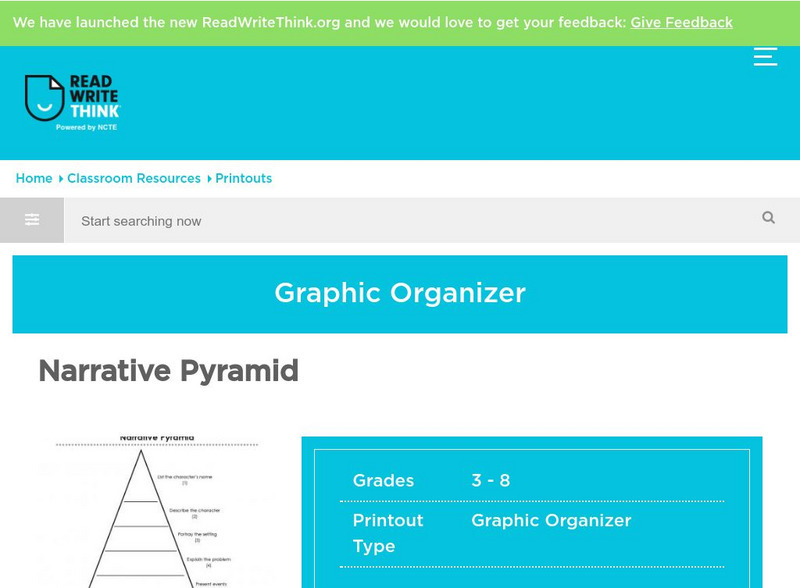Hi, what do you want to do?
ReadWriteThink
Read Write Think: Completing the Circle: The Craft of Circular Plot Structure
Contains plans for five lessons that use the book "Long Night Moon" by Cynthia Rylant to teach students about circular plot structure. In addition to objectives and standards, this instructional plan contains links to resources used in...
ReadWriteThink
Read Write Think: Comics in the Classroom: Introduction to Narrative Structure
Contains plans for four lessons that teach students about narrative plot structures by using "The Three Little Pigs" fairy tale or a similar story. In addition to objectives and standards, this instructional plan contains links to sites...
Other
Englishbiz: The Structure of Narrative: Freytag's Triangle
Teaching the plot structure of narratives is made easy with this diagram of Freytag's Triangle (also known as the plot pyramid).
Other
Elements of Fiction
Simple discussion of the elements of fiction with a specific section devoted to Freytag's Pyramid (aka "basic plot structure"). A good place to start for gathering information on the structure of narrative.
TeachEngineering
Teach Engineering: All Fat Is Not Created Equally!
Students learn that fats found in the foods we eat are not all the same; they discover that physical properties of materials are related to their chemical structures. Provided with several samples of commonly used fats with different...
University of Illinois
University of Illinois: Predictable Story Books
Several examples of predictable books are listed and organized according to type. In addition to providing titles of children's books, this resource lists related titles for young adult readers. The bibliography includes several...
Varsity Tutors
Varsity Tutors: Web English Teacher: Julius Caesar
This extensive site features resources for teaching William Shakespeare's history play Julius Caesar. Includes lesson plans and other teaching resources.
ReadWriteThink
Read Write Think: Narrative Pyramid
A printable narrative pyramid where students can record information about a story including the character, setting, problem, main events, and solution. Directions on how to use this type of graphic organize as well as lists of teaching...
Curated OER
An Image of Freytag's Triangle Showing the Structure of a Narrative.
Teaching the plot structure of narratives is made easy with this diagram of Freytag's Triangle (also known as the plot pyramid).
ReadWriteThink
Read Write Think: What's in a Mystery? Exploring and Identifying Mystery Elements
Contains plans for seven lessons that teach learners about the plot structure, character, and setting of the mystery genre. In addition to objectives and standards, this instructional plan contains links to sites used in the lessons as...
Annenberg Foundation
Annenberg Learner: Literary Visions
Twenty-six half hour videos on literary analysis for high school students that feature authors, scholars, actors and noted critics. Topics include The Art of the Essay, Setting and Character in Short Fiction, Responding to Literature and...
AdLit
Ad lit.org: Classroom Strategies: Story Maps
Story Maps are used for teaching students to work with story structure for better comprehension. This technique uses visual representations to help students organize important elements of a story. Students learn to summarize the main...
Texas Education Agency
Texas Gateway: Writing a Short Story With Well Developed Conflict and Resolution
A learning module that teaches students about writing a short story in six mini-lessons: Introduction, Understanding the Essence, Getting an Idea, Structuring Plot, Building Conflict, and Outlining Your Own Story.
















